Welcome to T.C. Marsh Middle School 7th Grade Science!
Everything you wanted to know!
Textbook: Glencoe 7th Grade Science
Course Description: Science is the systematic knowledge derived
through experimentation, observation and study. In addition, the methodology
used to acquire this knowledge. Most importantly, science is about thinking and
asking questions, creating hypotheses and experimenting.
What will we study this year?
Life!
Life!
specifically...we will study...
Structure of Organisms- Plants/Animals
Genetics & Adaptations
Body Systems
Elements & Compounds
Body Systems
Elements & Compounds
Matter & Energy
Organisms & Environments
Organisms & Environments
Earth & Space
Science Journal: As part of our
curriculum, we are going to create Interactive Science Journals. It will be
key to success in science class this year, as well as 8th
grade test preparation materials. It will contain notes, handouts and
valuable information concerning class material. It will also contain students’
thoughts, creativity and personality.
The Science Journal must come to class
everyday! This is essential!
What supplies will you need for class?
1. 5 Subject notebook
2. #2 pencils
3. Stick Glue
4. Colored pencils
5. 1 Paper towels or Kleenex
6. 1 Ream of print paper
7. Construction paper
7. Highlighters
2. #2 pencils
3. Stick Glue
4. Colored pencils
5. 1 Paper towels or Kleenex
6. 1 Ream of print paper
7. Construction paper
7. Highlighters
Grading Procedures:
A = 90 and above B = 80 – 89 C = 70-79 F = 69 and below
A = 90 and above B = 80 – 89 C = 70-79 F = 69 and below
Grading Weight:
Grades will be weighted as follows: 45% Classwork/Homework
20% Tests
20% Projects/Products (ex: composition, research paper, presentation, report)
15% Six-week test grade
Classroom Norms
Classroom Rules:
Stay focused on learning
Make no excuses
Be respectful
Be prepared
Privileges:
Academic success
Praise and recognition
Positive parent contact
Classroom/school rewards
Self-gratification for a job well done
Consequences:
Warning or withdrawal of privileges
Student-teacher conference
Parent contact
Detention
Teacher/parent conference Assistant principal
Stay focused on learning
Make no excuses
Be respectful
Be prepared
Privileges:
Academic success
Praise and recognition
Positive parent contact
Classroom/school rewards
Self-gratification for a job well done
Consequences:
Warning or withdrawal of privileges
Student-teacher conference
Parent contact
Detention
Teacher/parent conference Assistant principal
1st week of school classroom information
Science Safety Power Point
Science Safety Power Point
What is science?
Life Science
Biology, or life science, is the study of all living things. This forest ecologist, a life scientist who studies interactions in forest ecosystems, is studying lichens growing on Douglas firs. Biologists ask questions such as
• How do plants produce their own food?
• Why do some animals give birth to live young and others lay eggs?
• How are reptiles and birds related?
Earth Science
The study of Earth, including its landforms, rocks, soil, and forces that shape Earth’s surface, is Earth science. These Earth scientists are collecting soil samples in Africa. Earth scientists ask questions such as
• How do rocks form?
• What causes earthquakes?
• What substances are in soil?
Physical Science
The study of chemistry and physics is physical science. Physical scientists study the interactions of matter and energy. This chemist is preparing antibiotic solutions. Physical scientists ask questions such as
• How do substances react and form new substances?
• Why does a liquid change to a solid?
• How are force and motion related?
 Visual Check What happens if a hypothesis is not supported?
Visual Check What happens if a hypothesis is not supported?
Hypothesize
Technology
The practical use of scientific knowledge, especially for industrial or commercial use is technology. Televisions, MP3 players, and computers are examples of technology. The C-Leg, shown above, is one of the latest designs of computer-aided limbs. The prosthetic leg has sensors that anticipate the user’s next move, which prevents him or her from stumbling or tripping. In addition, this new technology has several modes that can enable the user to walk, stand for long periods of time, and even ride a bike.
New Materials
Another possible outcome of an investigation is a new material. For example, scientists have developed a bone bioceramic. A bioceramic is a natural calcium-phosphate mineral complex that is part of bones and teeth. This synthetic bone mimics natural bone’s structure. Its porous structure allows a type of cell to grow and develop into new bone tissue. The bioceramic can be shaped into implants that are treated with certain cells from the patient’s bone marrow. It then can be implanted into the patient’s body to replace missing bone.
Possible Explanations
Many times, scientific investigations answer the questions: who, what, when, where, or how. For example, who left fingerprints at a crime scene? When should fertilizer be applied to plants? What organisms live in rain forests? In 2007, while exploring in Colombia’s tropical rain forests, scientists discovered a new species of poisonous tree frog. The golden frog of Supatá is only 2 cm long.
Scientific Laws Scientific laws are different from societal laws, which are agreements on a set of behaviors. A scientific law describes a pattern or an event in nature that is always true. A scientific theory might explain how and why an event occurs. But a scientific law states only that an event in nature will occur under specific conditions.
For example, the law of conservation of mass states that the mass of materials will be the same before and after a chemical reaction. This scientific law does not explain why this occurs—only that it will occur. Table 1 compares a scientific theory and a scientific law.
Evaluating Scientific Evidence
1. Key Concept Check How can a scientist minimize bias in a scientific investigation?
Understand Key Concepts
Interpret Graphics
Critical Thinking
16. A student was using a lit match during a laboratory investigation and did not extinguish it
properly when it was disposed of. The match caused a fire in the trash can.
What procedures should be followed to put out the fire?
What procedures should be followed if a person's hair catches fire?
Writing in Science
The last time that you watched squirrels play in a park or in your yard, did you realize that you were practicing science? Every time you observe the natural world, you are practicing science. Science is the investigation and exploration of natural events and of the new information that results from those investigations.
When you observe the natural world, you might form questions about what you see. While you are exploring those questions, you probably use reasoning, creativity, and skepticism to help you find answers to your questions. People use these behaviors in their daily lives to solve problems, such as how to keep a squirrel from eating bird seed, as shown in Figure 1.
Similarly, scientists use these behaviors in their work. Scientists use a reliable set of skills and methods in different ways to find answers to questions. After reading this lesson, you will have a better understanding of how science works, the limitations of science, and scientific ways of thinking. In addition, you will recognize that when you practice science at home or in the classroom, you use scientific methods to answer questions just as scientists do.
Figure 1 Someone used reasoning and creativity to design each of these squirrel-proof bird feeders. However, some solutions don’t work. Scientists use similar methods to try to solve problems.
Branches of Science
No one person can study all the natural world. Therefore, people tend to focus their efforts on one of the three fields or branches of science—life science, Earth science, or physical science, as described below. Then people or scientists can seek answers to specific problems within one field of science.
Life Science
Biology, or life science, is the study of all living things. This forest ecologist, a life scientist who studies interactions in forest ecosystems, is studying lichens growing on Douglas firs. Biologists ask questions such as
• How do plants produce their own food?
• Why do some animals give birth to live young and others lay eggs?
• How are reptiles and birds related?
Earth Science
The study of Earth, including its landforms, rocks, soil, and forces that shape Earth’s surface, is Earth science. These Earth scientists are collecting soil samples in Africa. Earth scientists ask questions such as
• How do rocks form?
• What causes earthquakes?
• What substances are in soil?
Physical Science
The study of chemistry and physics is physical science. Physical scientists study the interactions of matter and energy. This chemist is preparing antibiotic solutions. Physical scientists ask questions such as
• How do substances react and form new substances?
• Why does a liquid change to a solid?
• How are force and motion related?
WORD ORIGIN
biology
from Greek bios, means “life”; and logia, means “study of”
from Greek bios, means “life”; and logia, means “study of”
Scientific Inquiry
As scientists study the natural world, they ask questions about what they observe. To find the answers to these questions, they usually use certain skills, or methods. The chart in Figure 2 shows a sequence of the skills that a scientist might use in an investigation. However, it is important to know that, sometimes, not all of these skills are performed in an investigation, or performed in this order.
Scientists practice scientific inquiry—a process that uses a variety of skills and tools to answer questions or to test ideas about the natural world.
Scientists practice scientific inquiry—a process that uses a variety of skills and tools to answer questions or to test ideas about the natural world.
Figure 2 This flow chart shows steps you or a scientist might use during a scientific investigation.
 Visual Check What happens if a hypothesis is not supported?
Visual Check What happens if a hypothesis is not supported?
Ask Questions
Like a scientist, you use scientific inquiry in your life, too. Suppose you decide to plant a vegetable garden. As you plant the vegetable seeds, you water some seeds more than others. Then, you weed part of the garden and mix fertilizer into some of the soil. After a few weeks, you observe that some vegetable plants are growing better than others. An observation is using one or more of your senses to gather information and take note of what occurs.
Observations often are the beginning of the process of inquiry and can lead to questions such as “Why are some plants growing better than others?” As you are making observations and asking questions, you recall from science class that plants need plenty of water and sunlight to grow. Therefore you infer that perhaps some vegetables are receiving more water or sunlight than others and, therefore, are growing better. An inference is a logical explanation of an observation that is drawn from prior knowledge or experience.
Hypothesize
After making observations and inferences, you are ready to develop a hypothesis and investigate why some vegetables are growing better than others. A possible explanation about an observation that can be tested by scientific investigations is a hypothesis.
Your hypothesis might be: Some plants are growing taller and more quickly than others because they are receiving more water and sunlight. Or, your hypothesis might be: The plants that are growing quickly have received fertilizer because fertilizer helps plants grow.
Your hypothesis might be: Some plants are growing taller and more quickly than others because they are receiving more water and sunlight. Or, your hypothesis might be: The plants that are growing quickly have received fertilizer because fertilizer helps plants grow.
Predict
After you state a hypothesis, you might make a prediction to help you test your hypothesis. A prediction is a statement of what will happen next in a sequence of events. For instance, based on your hypotheses, you might predict that if some plants receive more water, sunlight, or fertilizer, then they will grow taller and more quickly.
Test Your Hypothesis
When you test a hypothesis, you often are testing your predictions. For example, you might design an experiment to test your hypothesis on the fertilizer. You set up an experiment in which you plant seeds and add fertilizer to only some of them. Your prediction is that the plants that get the fertilizer will grow more quickly. If your prediction is confirmed, it supports your hypothesis. If your prediction is not confirmed, your hypothesis might need revision.
Analyze Results
As you are testing your hypothesis, you are probably collecting data about the plants’ rates of growth and how much fertilizer each plant receives. Initially, it might be difficult to recognize patterns and relationships in data. Your next step might be to organize and analyze your data.
You can create graphs, classify information, or make models and calculations. Once data are organized, you more easily can study the data and draw conclusions. Other methods of testing a hypothesis and analyzing results are shown in Figure 2.
Draw Conclusions
Now you must decide whether your data do or do not support your hypothesis and then draw conclusions. A conclusion is a summary of the information gained from testing a hypothesis. You might make more inferences when drawing conclusions. If your hypothesis is supported, you can repeat your experiment several times to confirm your results. If your hypothesis is not supported, you can modify it and repeat the scientific inquiry process.
Communicate Results
An important step in scientific inquiry is communicating results to others. Professional scientists write scientific articles, speak at conferences, or exchange information on the Internet. This part of scientific inquiry is important because scientists use new information in their research or perform other scientists’ investigations to verify results.
1. Key Concept Check What is scientific inquiry?
Results of Scientific Inquiry
Both you and scientists perform scientific inquiry to find answers to questions. There are many outcomes of scientific inquiry, such as technology, materials, and explanations, as shown below.
1. Key Concept Check What are the results of scientific investigations?
Technology
The practical use of scientific knowledge, especially for industrial or commercial use is technology. Televisions, MP3 players, and computers are examples of technology. The C-Leg, shown above, is one of the latest designs of computer-aided limbs. The prosthetic leg has sensors that anticipate the user’s next move, which prevents him or her from stumbling or tripping. In addition, this new technology has several modes that can enable the user to walk, stand for long periods of time, and even ride a bike.
New Materials
Another possible outcome of an investigation is a new material. For example, scientists have developed a bone bioceramic. A bioceramic is a natural calcium-phosphate mineral complex that is part of bones and teeth. This synthetic bone mimics natural bone’s structure. Its porous structure allows a type of cell to grow and develop into new bone tissue. The bioceramic can be shaped into implants that are treated with certain cells from the patient’s bone marrow. It then can be implanted into the patient’s body to replace missing bone.
Possible Explanations
Many times, scientific investigations answer the questions: who, what, when, where, or how. For example, who left fingerprints at a crime scene? When should fertilizer be applied to plants? What organisms live in rain forests? In 2007, while exploring in Colombia’s tropical rain forests, scientists discovered a new species of poisonous tree frog. The golden frog of Supatá is only 2 cm long.
Scientific Theory and Scientific Laws
Scientists often repeat scientific investigations to verify that the results for a hypothesis or a group of hypotheses are correct. This can lead to a scientific theory.
Scientific Theory The everyday meaning of the word theory is an untested idea or an opinion. However, a scientific theory is an explanation of observations or events based on knowledge gained from many observations and investigations.
For example, about 300 years ago, scientists began looking at samples of trees, water, and blood through the first microscopes. They noticed that all of these organisms were made of tinier units, or cells, as shown in Figure 3.
As more scientists observed cells in other organisms, their observations became known as the cell theory. This theory explains that all living things are made of cells. A scientific theory is assumed to be the best explanation of observations unless it is disproved. The cell theory will continue to explain the makeup of all organisms until an organism is discovered that is not made of cells.
For example, about 300 years ago, scientists began looking at samples of trees, water, and blood through the first microscopes. They noticed that all of these organisms were made of tinier units, or cells, as shown in Figure 3.
As more scientists observed cells in other organisms, their observations became known as the cell theory. This theory explains that all living things are made of cells. A scientific theory is assumed to be the best explanation of observations unless it is disproved. The cell theory will continue to explain the makeup of all organisms until an organism is discovered that is not made of cells.
Figure 3 When you view blood using a microscope, you will see that it contains red blood cells.
Scientific Laws Scientific laws are different from societal laws, which are agreements on a set of behaviors. A scientific law describes a pattern or an event in nature that is always true. A scientific theory might explain how and why an event occurs. But a scientific law states only that an event in nature will occur under specific conditions.
For example, the law of conservation of mass states that the mass of materials will be the same before and after a chemical reaction. This scientific law does not explain why this occurs—only that it will occur. Table 1 compares a scientific theory and a scientific law.
Skepticism in Media
When you see scientific issues in the media, such as newspapers, radio, television, and magazines, it is important to be skeptical. When you are skeptical, you question information that you read or hear, or events you observe.
Is the information truthful?
Is it accurate?
Is the source reliable?
It also is important that you question statements made by people outside their area of expertise, and claims that are based on vague statements.
Is the information truthful?
Is it accurate?
Is the source reliable?
It also is important that you question statements made by people outside their area of expertise, and claims that are based on vague statements.
Evaluating Scientific Evidence
An important skill in scientific inquiry is critical thinking. Critical thinking is comparing what you already know with the information you are given in order to decide whether you agree with it. Identifying and minimizing bias also is important when conducting scientific inquiry. To minimize bias in an investigation, sampling, repetition, and blind studies can be helpful, as shown in Figure 4.
1. Key Concept Check How can a scientist minimize bias in a scientific investigation?
Science cannot answer all questions.
You might think that any question can be answered through a scientific investigation. But there are some questions that science cannot answer, such as the one posed in Figure 5.
Questions about personal opinions, values, beliefs, and feelings cannot be answered scientifically. However, some people use scientific evidence to try to strengthen their claims about these topics.
Questions about personal opinions, values, beliefs, and feelings cannot be answered scientifically. However, some people use scientific evidence to try to strengthen their claims about these topics.
Figure 5 Science cannot answer questions based on opinions or feelings, such as which paint color is the prettiest.
Safety in Science
Scientists follow safety procedures when they conduct investigations. You too should follow safety procedures when you do any experiments. You should wear appropriate safety equipment and listen to your teacher’s instructions. You should also have proper safety equipment easily accessible in the lab in case an accident would occur. For example, fire extinguishers and fire blankets are necessary safety equipment when using open flames or flammable materials. Also, you should learn to recognize potential hazards and to know the meaning of safety symbols. Read more about science laboratory safety in the Science Skill Handbook.
Ethics are especially important when using living things during investigations. Animals should be treated properly. Scientists also should tell research participants about the potential risks and benefits of the research. Anyone can refuse to participate in scientific research.
ACADEMIC VOCABULARY
ethics
(noun) rules of conduct or moral principles
(noun) rules of conduct or moral principles
Lesson Assessment
Use Vocabulary
1. Explain the relationship between observations and hypotheses.
2. Use the terms technology, scientific law, and scientific theory in complete sentences.
3. Contrast inference and prediction.
4. Compare and contrast critical thinking and inference.
Understand Key Concepts
5. Which should NOT be part of scientific inquiry?
A. bias
B. analysis
C. hypothesis
D. testing
6. Describe four real-life examples of the results of scientific investigations.
7. Discuss four ways a scientist can reduce bias in scientific investigations.
8. Which is NOT a source of bias?
A. accurate records
B. equipment choice
C. funding source
D. hypothesis formation
Interpret Graphics
9. Draw a graphic organizer like the one below. In each oval, list an example of how to test a
hypothesis using scientific inquiry.

hypothesis using scientific inquiry.

Critical Thinking
10. Suggest Why do you think people believe some theories even if they are not supported by
credible evidence?
credible evidence?
11. Evaluate In a magazine, you read that two scientific investigations attempted to answer the
same question. However, the two teams of scientists came to opposite conclusions. How do you
decide which investigation was valid?
same question. However, the two teams of scientists came to opposite conclusions. How do you
decide which investigation was valid?
12. Explain What would be the next step in the scientific inquiry process below?


13. Select a science career that uses technology. Explain how that career would be different if the
technology had not been invented.
technology had not been invented.
14. What process do scientists use to perform scientific investigations? List a possible sequence of
steps in a scientific inquiry and explain your reasoning
steps in a scientific inquiry and explain your reasoning
15. What next step of scientific methods might these marine biologists perform?
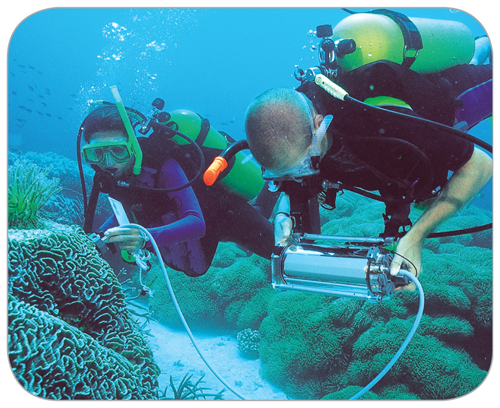

Images & Stories/Alamy
16. A student was using a lit match during a laboratory investigation and did not extinguish it
properly when it was disposed of. The match caused a fire in the trash can.
What procedures should be followed to put out the fire?
What procedures should be followed if a person's hair catches fire?
Writing in Science
17. Write a five-sentence paragraph that includes examples of how bias can be intentional or
unintentional and how scientists can reduce bias. Be sure to include topic and concluding
sentences in your paragraph.
unintentional and how scientists can reduce bias. Be sure to include topic and concluding
sentences in your paragraph.
1st Day of school Homework.Write 5 sentences or more about a career in science. Use the links below to help you. Do not copy and paste, re-write any information in your own words.
Welcome back to school!


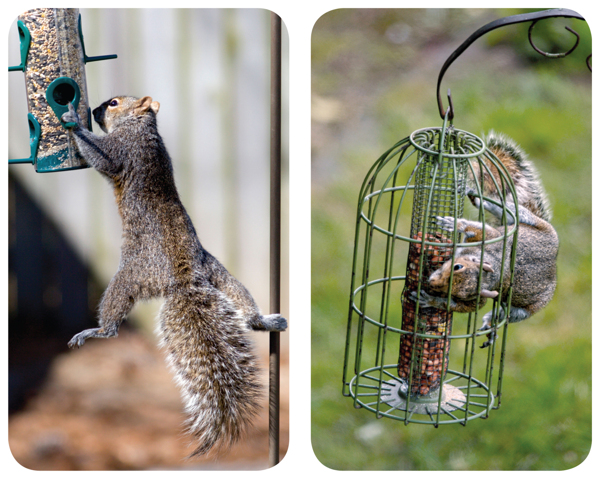



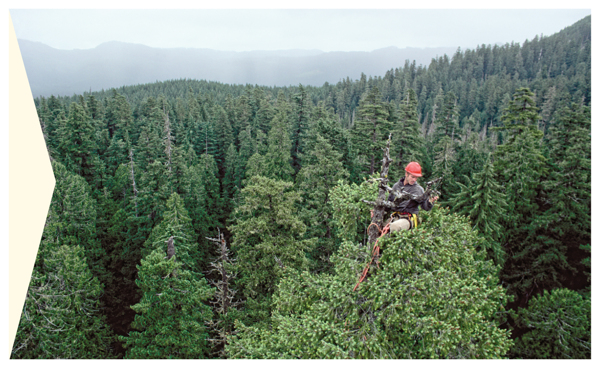
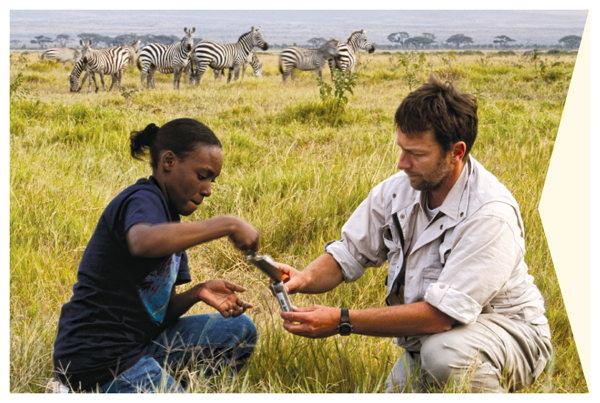
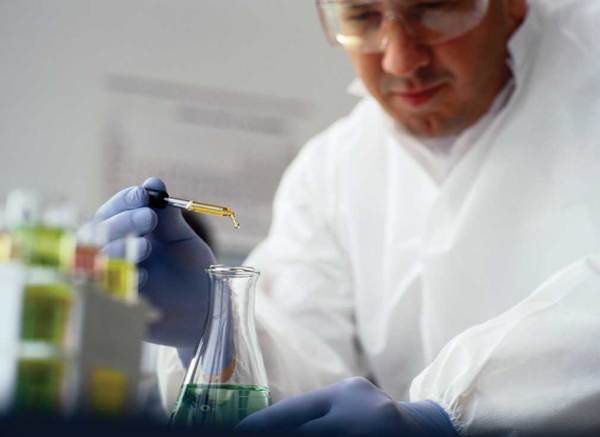
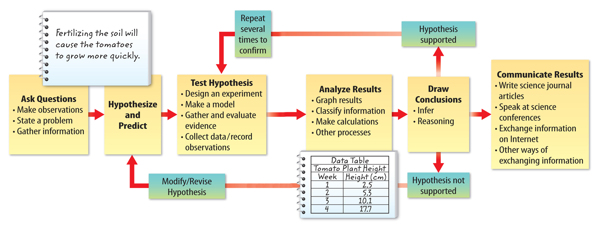


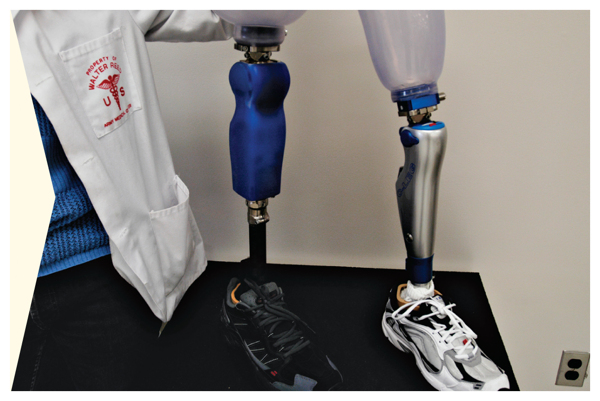
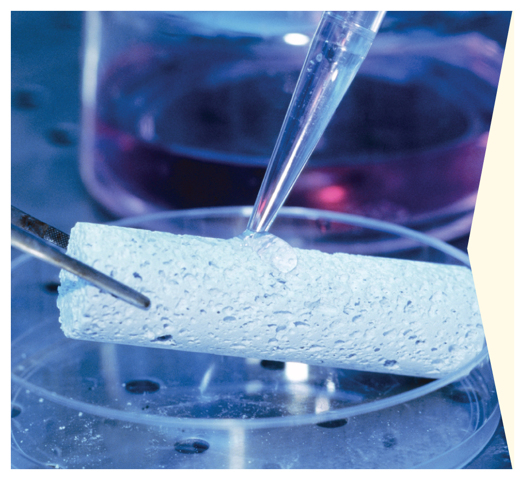
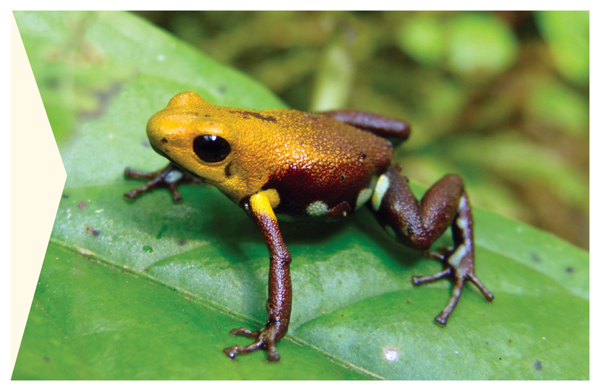
 Reading Check How do scientific theories and scientific laws compare?
Reading Check How do scientific theories and scientific laws compare? 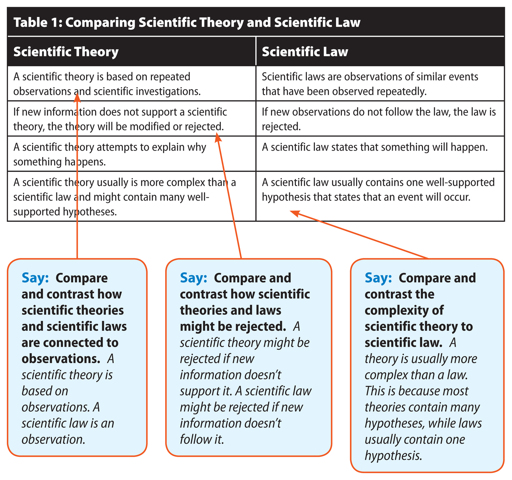
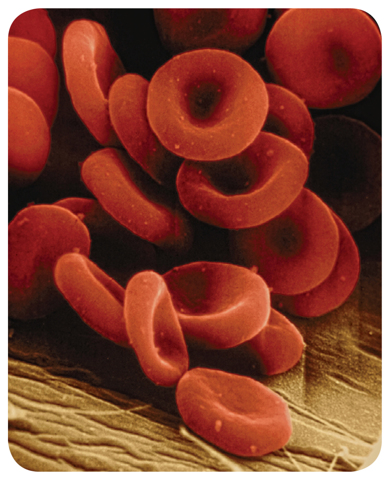
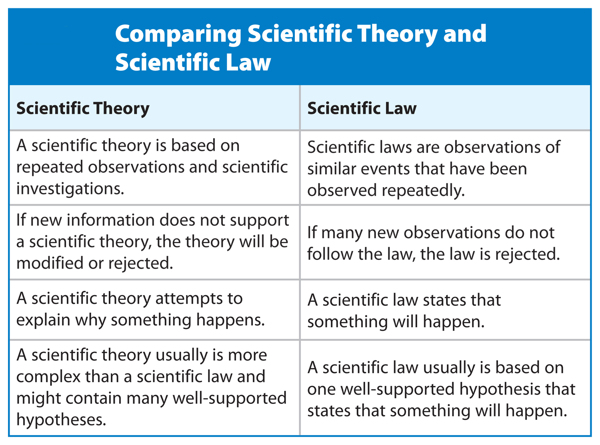
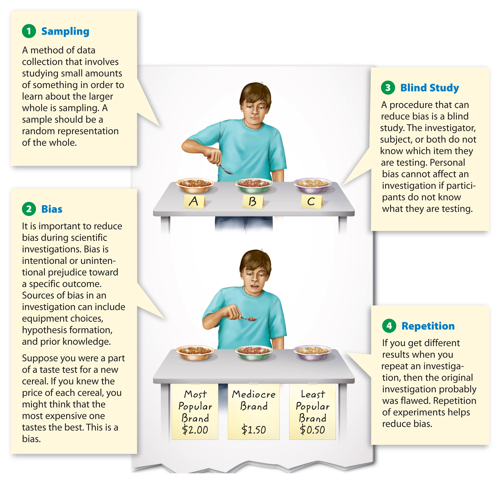

0 comments:
Post a Comment